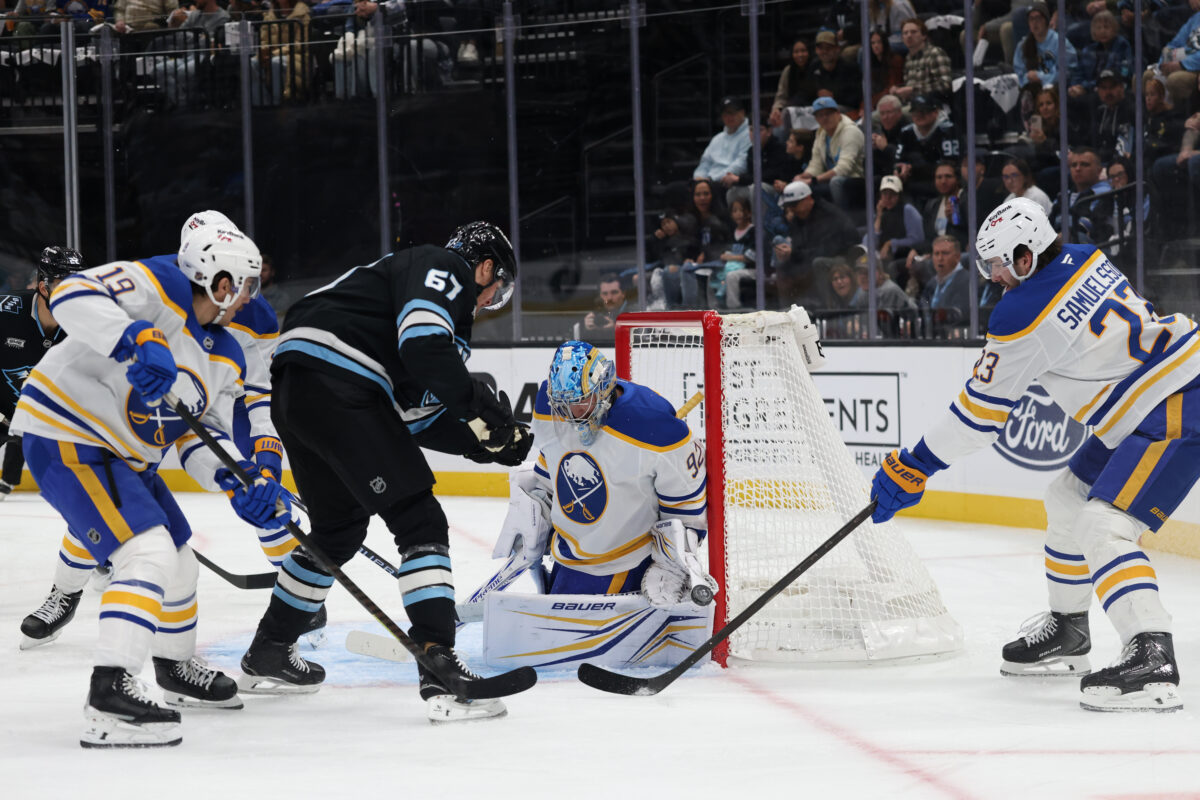It feels like there is no such thing as “rock bottom” for the Buffalo Sabres, a franchise that finds a way to sink lower with each passing day. They are dead-last in the Eastern Conference and the only team lower in the league standings are the rebuilding Calgary Flames.
Following a demoralizing 5-2 loss to the Utah Mammoth, the Sabres had the unenviable task of taking on the Colorado Avalanche on the road. Things went about as well as you can imagine, the Sabres putting up a decent fight before ultimately being overwhelmed in a 6-3 loss.
Can’t Finish Games
There are several themes that have become stark realities throughout this 14-season (and counting) playoff drought. One of the most glaring issues facing the Sabres – aside from growing attendance problems – is that they get dominated in the third period of games.

They are -8 in goal differential in the third period, a number that will no doubt continue to grow. Against a dominant team like the Avalanche, you can’t give them anything and the Sabres managed to keep things within one goal until the final three minutes and change.
Moral victories should not be a thing for an NHL team, especially one that hasn’t made the playoffs in as long as the Sabres have. Good teams find a way to win; bad teams only find more creative ways to lose. Staying competitive for two periods just isn’t good enough anymore.
Rosen Off to a Strong Start
The Sabres have no shortage of holes in their lineup. It would have been asking a lot of a full-strength Sabres to walk into Denver and beat the best team in the NHL. But it is somewhat encouraging that they have managed to get a strong early showing from young forward Isak Rosen.
Related: Sabre’s Jiri Kulich to Miss ‘Significant Time’ Due to Blood Clot
Rosen tallied an assist on the second period power play goal by Tage Thompson, bringing his total up to five points in six games. Rosen has had to take on an elevated role due to injuries, logging a season-high 17:33 of ice time against the Avalanche.
Like it or not, the Sabres are going to have to lean on a group of younger players to help them get through this stretch. No one knows when Jason Zucker, Rasmus Dahlin, Zach Benson, or Josh Norris will be coming back, so it’s nice to see Rosen responding positively to an increase in ice time and responsibility.
Another Season Marred by a Long Losing Streak
Close your eyes and point to any season in the last 15 years, and you will no doubt find a grievously long losing streak in there. Fans grimly recall the 18-game losing streak in 2020-21. There was the 14-game losing streak as everyone held out hope that Connor McDavid would arrive to save the day. And who could forget the 13-game losing streak last season that effectively took the Sabres out of the running in December?

The Sabres are starting to approach that level of ineptitude once again. They have lost eight of their last nine games, including five in a row and their last four in regulation. In a conference rife with parody, it doesn’t speak well to the Sabres’ chances of getting out of this muck.
Like clockwork, the Sabres find a way to get stuck in a long losing streak that kills whatever slim chances of making the playoffs they had left. On good teams, leaders would dig them out of a rut like this. On the Sabres, it becomes a question of where the bottom is.
Can They Keep the Bottom From Falling Out?
It feels like the season is over already and we haven’t even hit Thanksgiving. The Sabres are already eight points out of a playoff spot in the Atlantic Division and six points back of a Wild Card spot. The way they have been playing, it won’t be long before both are double-digit deficits.
At this point, the real concern becomes not about missing the playoffs, but who will defect. Will Thompson or Dahlin request a trade? Will Alex Tuch be compelled to re-sign with the team he grew up rooting for? The future of this team’s core is hanging in the balance, and that thread becomes thinner and weaker with each passing loss.
